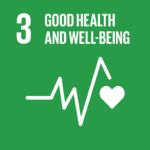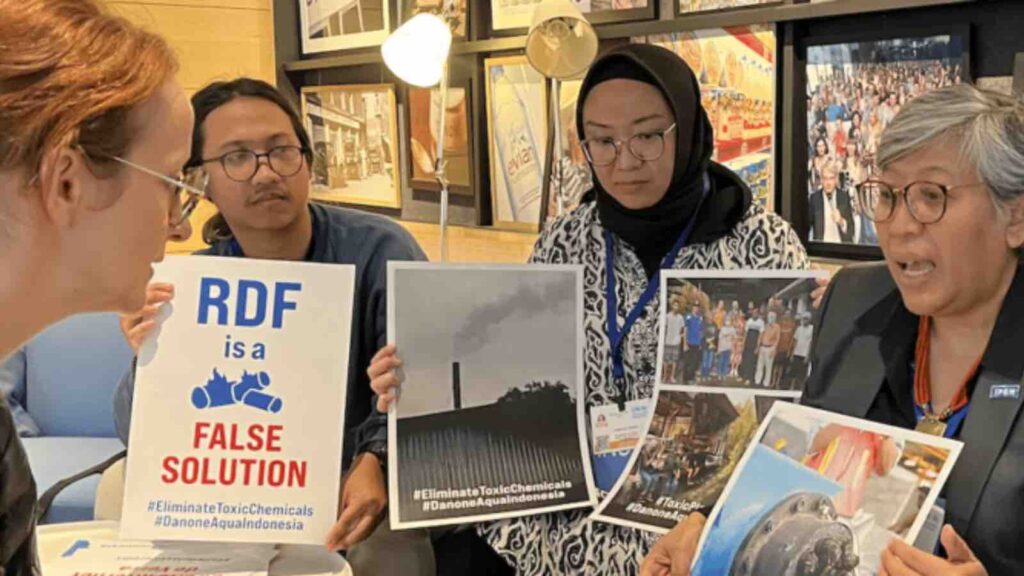Danone drops controversial plastic credits certification scheme in Indonesia, following a surge of local and international criticism.
Danone has officially withdrawn from its controversial plastic waste reduction certification project in Indonesia, following a surge of local and international criticism. The project, aimed at converting plastic waste into refuse-derived fuel (RDF), faced allegations of environmental pollution, social harm, and inadequate community consultation.
RELEVANT SUSTAINABLE GOALS



A Troubled Start: Criticism from Communities and Environmental Groups
Launched as part of Danone’s corporate social responsibility initiatives, the project sought certification under Verra’s plastic credit scheme. However, activists and community groups accused the initiative of contributing to toxic pollution rather than solving the plastic crisis. The RDF facilities were criticized for emitting hazardous air pollutants and producing toxic byproducts like ash and wastewater.
Local residents in Jimbaran, Bali, where one such facility was established, repeatedly raised concerns over foul odors, potential health risks, and the lack of community engagement during the project’s development. Reports emerged of alleged forged community signatures during the facility’s approval process. In April 2023, residents demanded the closure of the facility, leading to the suspension of operations. A fire at the site in July further exacerbated tensions, with suspicions pointing to internal conflicts between Danone’s local partners, PT. Reciki Solusi Indonesia and PT. Reciki Mantap Jaya.
Withdrawal and Broader Implications
On December 11, Verra confirmed that Danone had requested to withdraw its project from the certification platform in October. The company has since ceased funding and operational involvement in the project and has no plans to pursue plastic waste reduction certification through Verra.
Yuyun Ismawati, Co-chair of IPEN at Nexus3 Foundation and the Zero Waste Alliance, strongly condemned Danone’s approach, stating:
Poisoning communities to bolster business reputations with fraudulent certifications is unethical. We urge Danone to clean up the toxic sites and halt similar greenwashing practices elsewhere.
Yuyun Ismawati, Nexus3 Foundation Indonesia dan Aliansi Zero Waste Indonesia Co-chair IPEN
Environmental organizations like Greenpeace and IPEN have criticized RDF initiatives for failing to address the root causes of plastic pollution. Instead of eliminating waste, these projects often shift the problem to marginalized communities, exposing them to hazardous emissions from the open burning of plastic.
A 2023 report by Corporate Accountability and The Guardian revealed that 78% of carbon credit projects analyzed were likely “worthless,” drawing parallels to the flawed plastic credit schemes now under scrutiny.
The Larger Fight Against Plastic Pollution
The collapse of Danone’s project sheds light on the growing global backlash against plastic credit schemes, which critics argue are delaying meaningful solutions to plastic pollution. The Zero Waste Alliance and other environmental groups have vowed to continue monitoring projects funded by major polluters, emphasizing the need for systemic change rather than superficial fixes.
As Indonesia grapples with the social and environmental consequences of such initiatives, the call for transparent, community-driven, and sustainable waste management solutions becomes ever more urgent. This episode serves as a stark reminder that corporate greenwashing practices often fall short of delivering real environmental benefits, instead leaving communities to bear the brunt of their failures.
Lead image courtesy of Aliansi Zero Waste Indonesia


